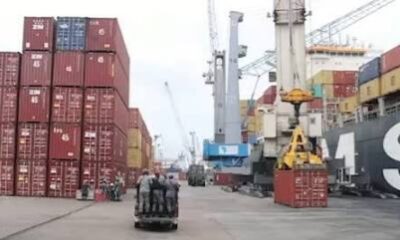Customs Report
Customs, FIRS, NSW Secretariat Deepen Collaboration on Trade Facilitation Project

BY FUNMI ALUKO
The Nigeria Customs Service (NCS) has intensified efforts to advance the Federal Government’s trade reform agenda through closer collaboration with the Federal Inland Revenue Service (FIRS) and the National Single Window (NSW) Secretariat.
On Tuesday, 12 August 2025, the Comptroller-General of Customs, Bashir Adewale Adeniyi (MFR), hosted the Executive Chairman of FIRS, Dr. Zacch Adedeji, and the Director of the NSW Project, Mr. Tola Fakolade, at the NCS Headquarters, Abuja.
The high-level meeting reviewed progress on the Nigerian National Single Window Project and outlined final steps towards its operational take-off in the first quarter of 2026.
Addressing the session, CGC Adeniyi stressed that the National Single Window is a “transformational initiative that will reshape Nigeria’s trade landscape”, noting that its success depends on seamless inter-agency collaboration.

“This project is not just about technology; it is about building a modern trade ecosystem where government agencies work as one to serve the trading community with efficiency, transparency, and speed,” Adeniyi said.
Launched in April 2024 by President Bola Ahmed Tinubu, the Nigerian National Single Window is a unified digital platform connecting all trade-related government agencies. Once operational, it is expected to drastically cut bureaucratic bottlenecks, reduce cargo clearance time, lower operators’ costs, and position Nigeria as a more competitive player in global trade.
In his remarks, Dr. Zacch Adedeji reaffirmed FIRS’ commitment to the project, saying the revenue agency would “collaborate fully to ensure the system delivers on its promise of improved compliance, revenue growth, and ease of doing business.”
The NSW Director, Mr. Fakolade, called on all participating agencies to meet their integration timelines to keep the Q1 2026 launch on track.
The meeting concluded with a shared pledge by the NCS, FIRS, and NSW Secretariat to intensify technical integration, maintain open engagement channels, and keep stakeholders informed.
The platform, when fully operational, will not only enhance revenue generation but also create jobs, strengthen compliance, and provide tangible benefits for businesses, government, and consumers alike.

































